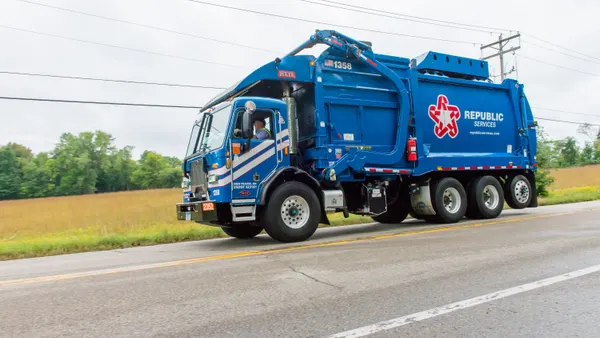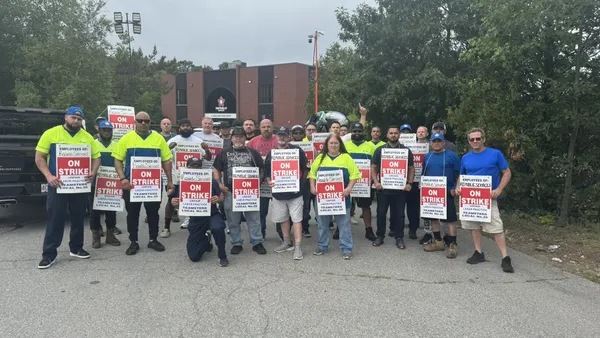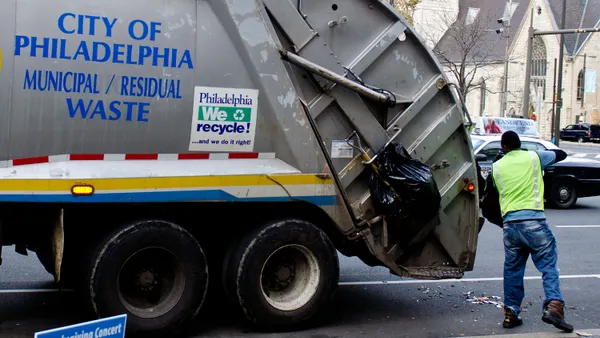Dive Brief:
- Manchester, NH, the state's largest city, will launch a pilot program to test automated solid waste collection for six to 12 months starting in spring 2017, as reported by Waste360.
- The Department of Public Works struck the deal with Manchester's Board of Mayor and Alderman after many attempts to convince the Board of the positive impacts that an automated system may have. Increased safety, more efficient collections and better service were all noted as potential benefits.
- While some residents already own carts that are fit for automated collections, other residents will be given an opportunity to split the cost of a compatible bin with the city.
Dive Insight:
As the industrywide driver shortage creates waves across the nation, automated collections have been viewed as a solution to get more drivers behind the wheel. By not needing to get out of the truck as often as traditional waste collectors, drivers of automated trucks may feel more safe on the road. Additionally, not needing to lift heaving bins is especially appealing to driver candidates that are women, according to the Women in Trucking Association (WIT).
Waste360 reported that Manchester lost an average of 4,500 hours per year over the last three fiscal years to injuries of solid waste employees — a number that may now see a dramatic decrease.
Automated collection does have its challenges, however, especially during the transition period. In January, Orange County, FL switched to automated collection and reduced its weekly pickup frequency, resulting in faulty services and hundreds of customer complaints. Some drivers were accused of damaging customers' properties with the truck arms and others were accused of simply not knowing how to operate the trucks. It is important in Manchester — and other cities looking into similar programs — that drivers are well-trained and feel prepared before tackling their routes with automated trucks .











